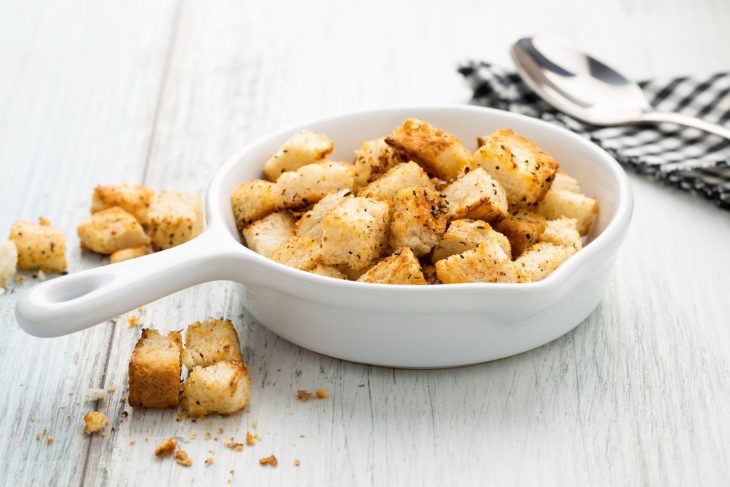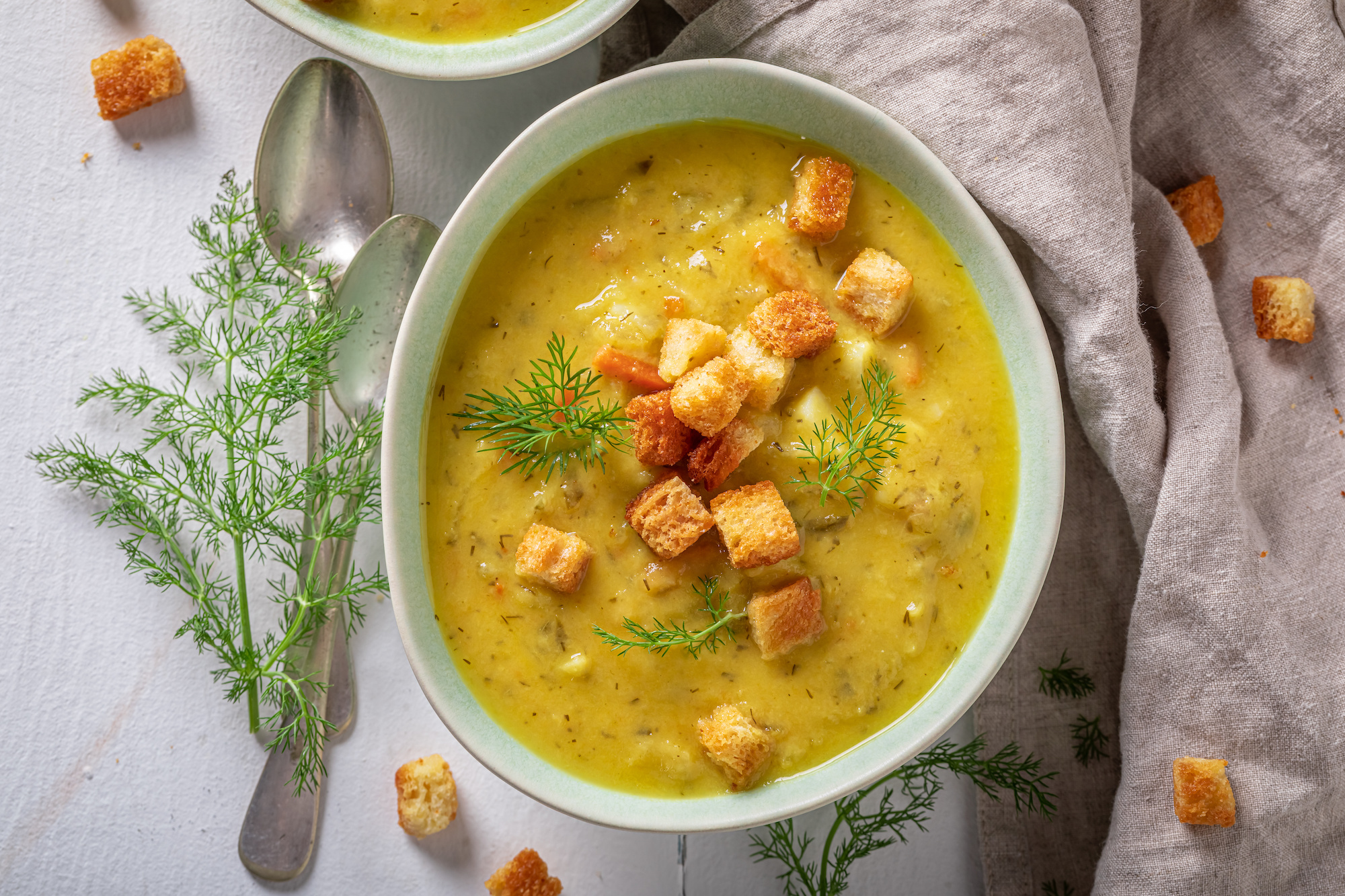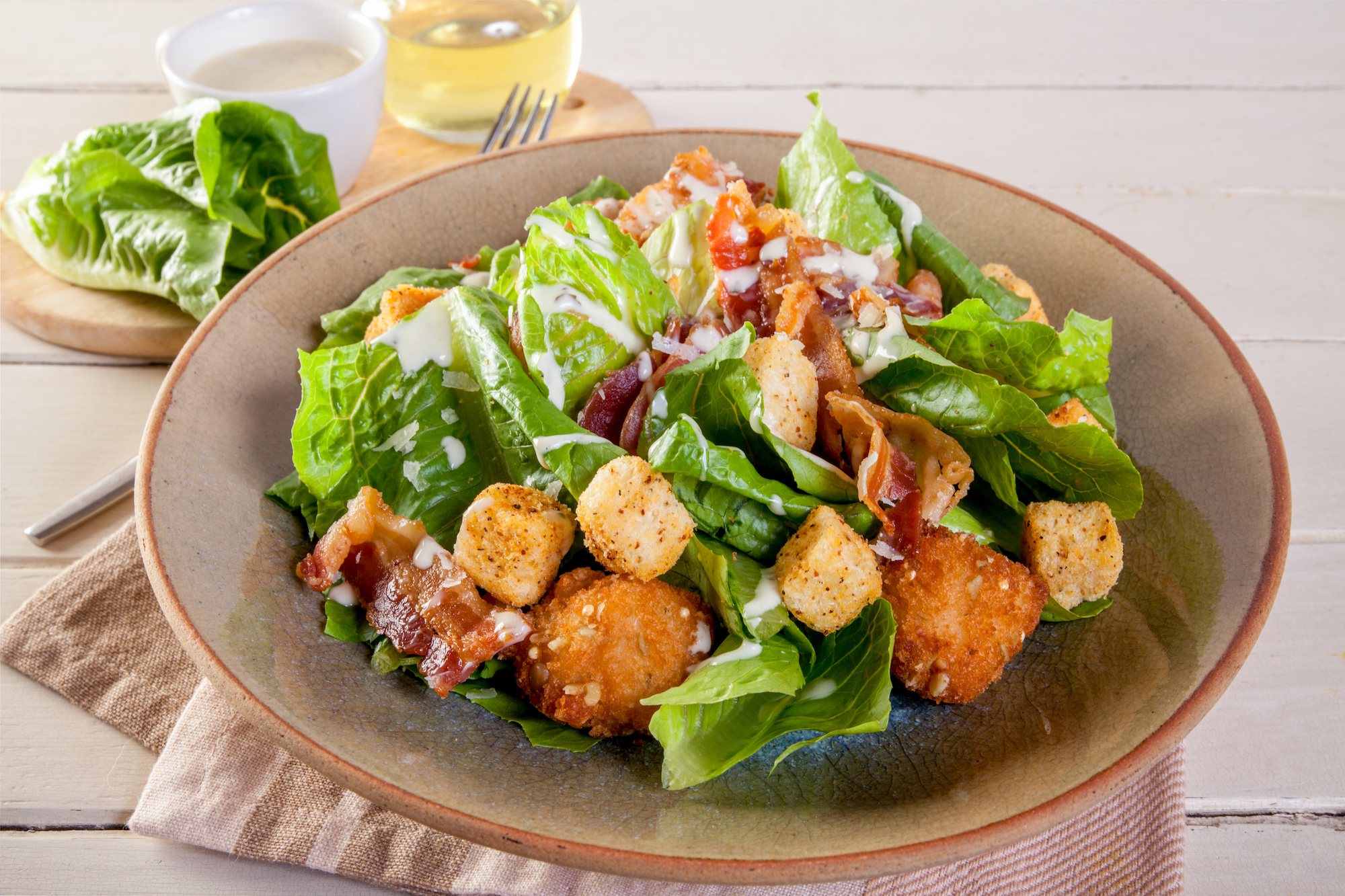
Crunchy, flavorful, and versatile, croutons are more than just salad toppers. These small bread cubes have gained popularity as a delightful addition to various dishes. While croutons are known for adding texture and taste to salads and soups, they also offer some interesting nutritional benefits. In this article, we’ll explore 11 fascinating crouton nutrition facts that will leave you craving for more!
Croutons: A Good Source of Energy
Croutons are primarily made from bread, which is a rich source of carbohydrates. Carbohydrates are the body’s primary source of energy, providing fuel for our daily activities.
Essential Nutrients in Croutons
Croutons can contribute essential nutrients to your diet. They typically contain vitamins and minerals such as vitamin B-6, iron, and magnesium, which are important for maintaining overall health and well-being.
Fiber Content in Croutons
Did you know that croutons can be a source of dietary fiber? While the exact fiber content varies depending on the bread used, opting for whole wheat or multigrain croutons can boost your fiber intake. Fiber aids digestion, helps maintain a healthy weight, and promotes a feeling of fullness.
Croutons and Protein
Although croutons are not typically a significant source of protein, they can still contribute a small amount to your overall protein intake. Protein is crucial for muscle repair, immune function, and the production of enzymes and hormones.
Calories in Croutons
While croutons provide energy, it’s important to be mindful of their calorie content. On average, one ounce of croutons contains around 100-120 calories. So, enjoy them in moderation to balance your calorie intake.

Sodium Levels in Croutons
Croutons are often seasoned with salt and other flavorings to enhance their taste. Consequently, they can be a source of sodium. If you’re watching your sodium intake, consider opting for low-sodium or homemade croutons to control the amount of salt added.
Healthier Alternatives to Traditional Croutons
If you’re looking for healthier options, consider alternatives to traditional croutons. You can experiment with homemade croutons using whole grain bread, olive oil, and a variety of herbs and spices to control the ingredients and make them more nutritious.
Gluten-Free Crouton Options
For individuals with gluten sensitivities or celiac disease, finding gluten-free croutons is essential. Luckily, there are gluten-free bread varieties available that can be transformed into delicious gluten-free croutons to cater to different dietary needs.
Portion Control and Serving Sizes
When enjoying croutons, it’s crucial to practice portion control. Pay attention to the recommended serving sizes mentioned on the packaging, as consuming excessive amounts of croutons may contribute to a higher calorie and sodium intake.
Croutons as Salad Toppers
Salads are incomplete without a sprinkle of croutons! Besides adding a delightful crunch, croutons can make your salad more filling and satisfying. Be mindful of other ingredients in your salad to maintain a balance between taste, texture, and nutrition.

Croutons in Culinary Creativity
Beyond salads and soups, croutons can be used in various creative ways. From incorporating them into casseroles and stuffing to using them as a topping for mac and cheese or creamy dips, croutons add a unique touch and elevate the flavors of your favorite dishes.
Conclusion
Croutons are more than just crispy bread toppings. They offer a range of nutrition benefits, including energy, essential nutrients, and fiber. While enjoying croutons, be mindful of portion sizes, calorie content, and sodium levels. Consider healthier alternatives and gluten-free options to cater to specific dietary needs. So, let your culinary creativity shine and experiment with croutons beyond the confines of salads and soups!
Frequently Asked Questions (FAQs)
Are croutons suitable for individuals following a gluten-free diet?
Yes, there are gluten-free bread varieties available that can be used to make gluten-free croutons. Always check the packaging or make them at home using gluten-free bread.
How many calories do croutons typically contain?
On average, one ounce of croutons contains around 100-120 calories. However, the calorie content may vary depending on the brand and seasoning used.
Can croutons be a good source of fiber?
Yes, croutons can contribute to your fiber intake, especially if made from whole wheat or multigrain bread. Opting for these varieties can increase the fiber content in your diet.
Do croutons contain protein?
While croutons are not a significant source of protein, they do provide a small amount. To meet your protein requirements, incorporate other protein-rich foods into your diet.
How can I make homemade croutons healthier?
To make homemade croutons healthier, use whole-grain bread, olive oil, and a variety of herbs and spices. This way, you can control the ingredients and make them more nutritious.
Remember, croutons can be a delightful addition to your meals, but moderation is key. Enjoy their crunchy goodness while considering your overall nutritional goals.
Was this page helpful?
Our commitment to delivering trustworthy and engaging content is at the heart of what we do. Each fact on our site is contributed by real users like you, bringing a wealth of diverse insights and information. To ensure the highest standards of accuracy and reliability, our dedicated editors meticulously review each submission. This process guarantees that the facts we share are not only fascinating but also credible. Trust in our commitment to quality and authenticity as you explore and learn with us.


